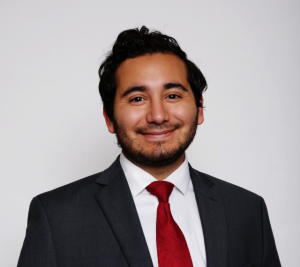by Lario Jose Albarran

In February 2020, Professor Martha A. Fineman visited my class (a seminar on archival research) and answered questions about her career and work. In discussing the latter, Professor Fineman introduced the class to vulnerability theory. The elegance in centering everything’s vulnerability interested me to learn more, so I enrolled in the Law & Vulnerability seminar for the 2021 spring semester. In this short piece, I detail my experience in the course and its impact on me—both were fantastic. First, I describe how the class discussion kept me engaged in my last semester of Zoom law school. Second, I explain why taking the course was one of my best law school decisions.
The Law & Vulnerability seminar was a highly interactive, discussion-based course that kept me engaged in two primary ways: fostering interesting discussions and making me uncomfortable. First, the weekly topics and readings made it easy to facilitate discussions based on the class’ interests and backgrounds. In many instances, I found I learned as much from the people and their experiences as I was learning from the material. While many seminars set out to do this, the unique aspect of this seminar was its relationship to scholars affiliated with the Vulnerability and the Human Condition Initiative, who sat in and contributed to many of our class discussions. As such, the varying perspectives from class participants—law students, non-law students, or scholars alike—offered many opportunities to develop our understanding of vulnerability theory. Second, the seminar made me uncomfortable. These feelings weren’t negative, but they were the result of difficult questions that targeted my assumptions of the status quo. For example, I struggled to come up with answers to questions about my opinions, like “what is the role of the state” or “what is the law,” because I didn’t know how to articulate my feelings to questions I had never contemplated before. Likewise, it felt awkward to end many of our class meetings with limited, or partial—if any, solutions to our questions of substantive equality and justice. My discomfort derived from the fact that I had never taken the time to critically reflect on my assumptions of how society functions and how society believes it functions. I’m glad I didn’t turn away from the discomfort because it gave me the ability to expand my perspectives on what the world could be.
Enrolling in the Law & Vulnerability seminar was one of my best law school decisions because it gave me insight into how society could function. For context, a little over a month after Professor Fineman visited my class in 2020, Emory ended in-person class instruction as the world responded to the COVID-19 pandemic. By the course’s spring start date, we were learning about vulnerability theory in a virtual class during a history-changing global event. Isolated from people, desensitized by death tolls, I found myself withdrawn and generally pessimistic about everything. That changed after the first week of class. Taking the course on Zoom during the COVID-19 pandemic highlighted our humanity and what makes everything vulnerable with an immense degree of intimacy that made each class discussion hit home. While part of this feelings is due to class discussions that weren’t only scholarly but personal, a larger part of the feeling derives from learning about the role that law plays in structuring how society addresses our shared vulnerability. As such, the takeaway that impacted me the most is that the class sheds light on what a vulnerability approach to the law could create—and that gives me hope.